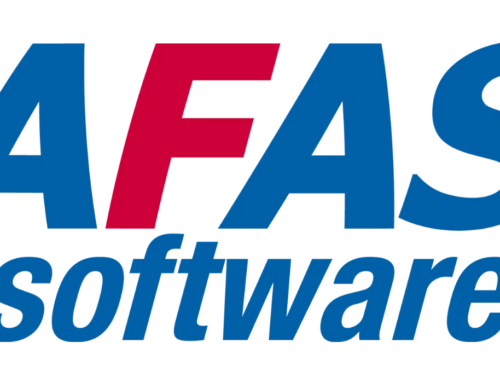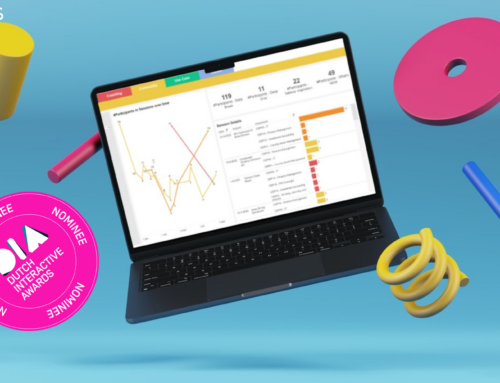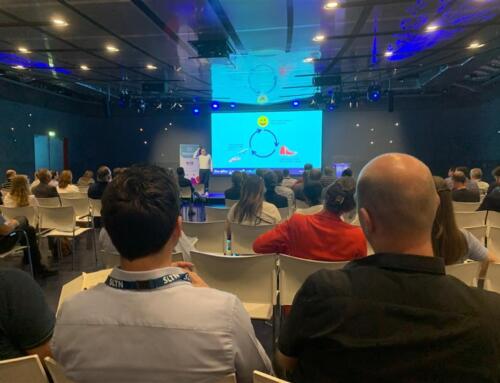How to start with Artificial Intelligence?
CEO’s often back away from Artificial Intelligence. Mostly because organizations cannot really grasp the concept itself. What does AI entail?
The way most organizations see it play out is that a large team of data scientists work on Artificial Intelligence and produce numerous promising models. Complex algorithms promise organizations the future but fail to deliver on their promise. Although one or two parts of this complex model will usually be implemented in the business, the return on investment falls short.
This is not all too surprising, as projects around AI often start with the algorithm in mind and not with the result or desired outcome for the business in mind.
They key here is to start with focusing on your busines inquiry. Where can you optimize your operations? What problems are occurring in your business? How can you create value? In other words: turn the process around:
- Place yourself in the organization’s shoes
- Start with the business problem in mind
- Start small
Why would you start with Artificial Intelligence?
Artificial Intelligence can deliver massive value for your business. With AI emerging everywhere, you can create a competitive advantage that helps your business grow.
- AI creates value in terms of efficiency
Reporting and analysing processes in your business, for example financial forecasting, can be done without AI. But the process is a long, time consuming one. With AI, this time-consuming process is brought back to a few minutes, which allows your employees to allocate their time to other projects and innovations and creates value in efficiency. - AI creates value in terms of profit
With AI, odd patterns or deviants stand out within minutes. For example: usually a marketing department clusters their customers in several target groups. However, different patterns come to light with AI, which create unique and interesting target groups that help making marketing offers and messages even more effective and result in more profit. - AI creates value in terms of optimizing
With Artificial Intelligence, capacity can be forecasted and planned precisely, which optimizes the logistic operations of the organization in many areas.
But… AI is difficult
Artificial Intelligence is seen as a big investment, something risky and difficult to start with. One of the most important reason organizations are hesitant to start with AI is that they do not really know what AI is.
Fortunately, you do not really have to know what AI is. We already use in in our daily lives. Think of Siri, Google Home or those chatbots on several websites and apps.
We believe those devices use AI, but do we really care how they work?
Another reason the organizations are hesitant is the lack of relatable examples. The examples we hear of are usually from the US and China and do not really show the practical side of AI.
AI comes down to about 80% data preparation – translating the business use case into data and asking the right questions. Every company can start with that. The first results probably lead to more questions along the way, but eventually can lead to an accurate forecast, that allows organizations to improve. Even if this improvement is only a percent or two, the return can be huge.
Instead of thinking AI is difficult, focus om what you already know and start small. Sharing concrete, practical, and relatable examples of what AI can do for organizations also helps to make the first into the world of AI.
How to start with Artificial Intelligence?

1. Focus
Data scientist often start working on a complicated algorithm and make the business expect that it can solve nearly anything. This is often a disillusion. Instead of focussing on solving everything, start small. Start with solving one business problem with AI and deliver the return on investment.
2. Show results
People need to see the results to understand they can benefit from AI. By choosing one (small) problem, you can build a proof of value within your company and let employees experience the value of AI.

3. Just do it
There are a million reasons why you cannot start with AI right now. Excuses that are often heard are:
- The data quality is low
- We miss expertise
- We don’t have time for it
- We don’t have the tools for it
And why these excuses are probably true. You do not have to start on your own. You do not have to optimize your data to a state of perfection. In fact: start with what you already have and discover what else you need to expand AI within your company. Before you spend millions of euros on tools and expertise, work together with external experts who can help you to take the first step.
4. Be ready to change
AI only creates value if the organization is ready to change. Artificial Intelligence is not simply buying tools and hiring data scientists to implement it. It requires the business to be ready to work with data. This requires an organizational change. Can employees work with data? Do they see the value of it? Are they ready to base their decisions on data?
By showing results along the way and focussing on improvements that help the organization, employees are more willing to embrace AI eventually.

5. Be realistic
To create value, you want to solve a business problem that effects your day-to-day operation. This creates the most value but is often also very difficult to do. The key here is to quickly identify which use case would deliver the most value and track the progress along the way. Is the project not delivering any results? Stay realistic and pull the plug when you need to.
Executive Inspiration Session
Are you ready to start with AI? To discover if your organization is ready, we encourage you to start small. Investigate what AI can do for you and how you can start implementing AI with what you have right now.
We organize an executive inspiration session to discover if you are ready. Share experiences and results with other CEO’s in a round table setting and make the first practical steps to start with AI right now.






Wanneer ik aan AI denkt, komt direct sci-fi films in gedachten. Ik weet dat de militaire branche veel hiermee experimenteert, maar nooit verwacht dat de zakelijke branche ook vaker ermee bezig is. Zo zie je dat de technologie niet stil blijft. Elk moment worden er nieuwe ontwikkelingen gedaan. Prima dat je lezers op de hoogte houdt van zulke ontwikkelingen.